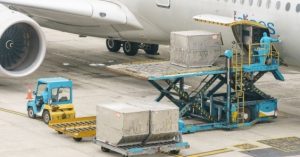You’ve likely heard about Singapore’s bustling air cargo industry, but have you considered the challenges it faces in maintaining cost- effectiveness? As global competition intensifies and market demands shift, air cargo in Singapore must adapt to stay ahead. From embracing digital technologies to fostering collaborative partnerships, there’s a range of strategies that can streamline operations and reduce expenses. But which approaches will yield the best results in Singapore’s unique business environment? Let’s explore the innovative solutions that are reshaping the air cargo landscape and discover how they’re transforming the way goods move through this essential Asian hub.
effectiveness? As global competition intensifies and market demands shift, air cargo in Singapore must adapt to stay ahead. From embracing digital technologies to fostering collaborative partnerships, there’s a range of strategies that can streamline operations and reduce expenses. But which approaches will yield the best results in Singapore’s unique business environment? Let’s explore the innovative solutions that are reshaping the air cargo landscape and discover how they’re transforming the way goods move through this essential Asian hub.
Embracing Digital Transformation
Increasingly, air cargo companies are recognizing the transformative power of digital technologies. You’ll need to implement blockchain for enhanced traceability, IoT sensors for real-time monitoring, and AI-driven predictive analytics to optimize operations. Invest in cloud-based platforms for seamless data sharing across your supply chain. Embrace robotic process automation to streamline documentation and customs clearance procedures, reducing errors and accelerating turnaround times.
Optimizing Warehouse Management
Numerous air cargo companies overlook the critical role of warehouse management in reducing costs and improving efficiency. You’ll maximize space utilization by implementing advanced racking systems and automated storage solutions. Optimize inventory management through real-time tracking and RFID technology. Implement cross-docking to minimize handling and storage time. Utilize warehouse management systems (WMS) to streamline operations, reduce errors, and enhance labor productivity.
Collaborative Supply Chain Partnerships
In today’s interconnected global economy, collaborative supply chain partnerships have become a cornerstone of cost-effective air cargo operations. You’ll find that integrating your systems with those of suppliers, carriers, and customers can significantly reduce costs and improve efficiency. By sharing data, forecasts, and resources, you’ll optimize inventory levels, streamline processes, and enhance responsiveness to market fluctuations. This collaborative approach enables real-time visibility and proactive decision-making throughout the supply chain.
Sustainable Practices for Efficiency
Several sustainable practices can significantly boost efficiency in air cargo operations while reducing environmental impact. You’ll find success by implementing lightweight unit load devices, optimizing load factors, and utilizing route planning software. Consider adopting electric ground support equipment and investing in sustainable aviation fuel. Implement paperless documentation systems and prioritize waste reduction in packaging. These strategies will enhance your operational efficiency and environmental performance simultaneously.
